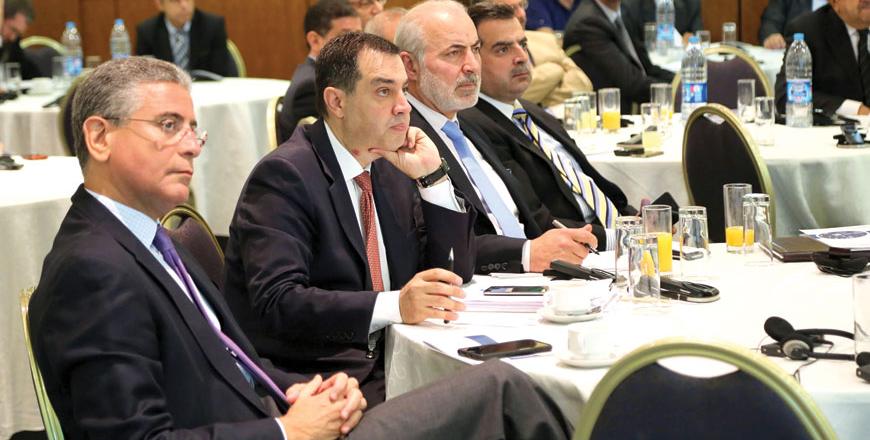You are here
World Bank expects fairly better economic performance in 2016
By Khetam Malkawi - Apr 13,2016 - Last updated at Apr 13,2016
AMMAN — The Kingdom’s gross domestic product (GDP) is expected to improve to 3 per cent in 2016, up from 2.4 per cent in 2015, which witnessed the slowest pace in four years, said the World Bank (WB) on Wednesday.
The World Bank’s “MENA Economic Report, Spring 2016 issue titled: Reconstruction for Peace in Syria” issued late on Tuesday said GDP growth moderated during 2015 to an estimated 2.4 per cent, the slowest pace in four years, magnifying already-high unemployment.
The International Monetary Fund (IMF) put the GDP growth last year at 2.5 per cent.
“Security spillovers from regional conflict worsened, negatively impacting tourism, construction, investment and trade,” the WB report said, adding, however, that growth in a number of sectors held up
well through the third quarter of 2015, including in finance and insurance services, transport, storage and communications, electricity and water, and mining and quarrying.
According to the report, unemployment rose to 13 per cent in 2015, an increase of 1.1 percentage points relative to 2014.
Monetary policy remained expansionary with the Central Bank of Jordan (CBJ) reducing the key policy lending rate by 125 basis points during the course of 2015, the report noted, adding that the international reserves at CBJ slightly rose to $14.2 billion (which is enough to cover 7.5 months of imports) by end-2015.
Meanwhile, the growth is expected to improve to 3 per cent in 2016, assuming no further worsening in the regional security situation and associated spillovers.
“This is driven by an expansion in mining and quarrying sector and positive base effect of tourism and construction sectors,” the report said, adding that Jordan is working towards an Extended Fund Facility (EFF) with the IMF.
The EFF is anticipated to support further fiscal consolidation efforts in parallel with growth-enhancing and job-creating structural reforms.
In a statement sent to The Jordan Times, the WB said the report provides an economic outlook for the Middle East and North Africa (MENA), predicting that regional GDP growth will average 3 per cent in 2016.
It explained that due to a combination of civil wars and refugee inflows, terrorist attacks, cheap oil and a subdued global economic recovery, prospects for faster growth are slim.
“Civil wars have severely harmed the economies of Syria, Libya, Yemen and Iraq, and have had spillover effects on the economies of Lebanon and Jordan,” the statement said.
It added that MENA’s oil-importing countries will see their growth slowdown, despite low oil prices, because of persistent security concerns and slow activity in tourism and remittance inflows. Growth in oil exporting countries, including the six Gulf Cooperation Council countries, will be affected by persistently low oil prices.
Commenting on this report, World Bank Chief Economist of the MENA Region Shanta Devarajan said: “While the short-term outlook remains ‘cautiously pessimistic’, there is an opportunity to start addressing the main source of the slowdown—the civil war in Syria—by an inclusive reconstruction strategy.”
Related Articles
AMMAN — Amid a turbulent regional political and security environment, Jordan is wrestling with sluggish growth and high unemployment, accord
AMMAN – The Kingdom's 2016 state budget would assume an average oil price of $60 per barrel and a gross domestic product growth rate of 3.7
AMMAN — Despite the spillover of regional chaos, including the Syrian refugee crisis, the Egypt gas disruption, and security threats, Jordan















